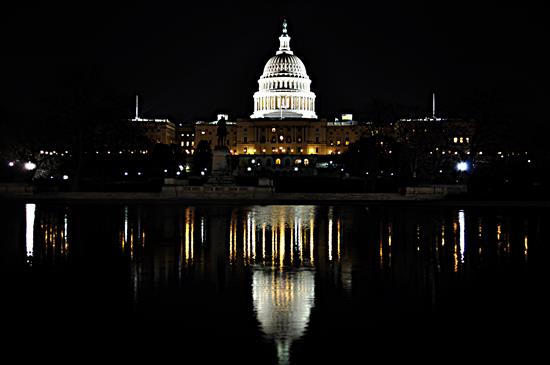Press Releases
Idaho Delegation Votes to Avoid Government ShutdownLegislation includes border security funding and major Idaho priorities
Washington,
February 14, 2019
Washington, D.C. - Today, the Idaho Congressional Delegation voted to pass H.J. Res. 31, which funds the rest of government through the end of fiscal year 2019. The legislation contains many important priorities that will directly benefit Idaho and provide funding for border security. Specifically, the legislation funds the Agriculture; Commerce, Justice, Science; Interior and Environment; Financial Services; State and Foreign Operations; Transportation, Housing and Urban Development; and Homeland Security and Related Agencies appropriations bills for fiscal year 2019. “I supported today’s measure because it takes a step toward making our communities safer. Bicameral, bipartisan appropriators diligently advanced a compromise proposal that addresses urgent priorities in the seven outstanding appropriations packages. For homeland security, this agreement provides more than $1.3 billion for physical security barriers along portions of our border that have been designated as the highest priority by our Border Patrol. Additionally, it provides an unprecedented $22.5 billion for overall border security initiatives that includes law enforcement personnel and drug trafficking prevention. Locally, this bill will also fund the Payment in Lieu of Taxes program, which provides funding to Idaho’s counties to make up for lost revenues from federal ownership of lands,” said Senator Mike Crapo. “The President has also indicated he intends to declare a national emergency to use specific powers to secure our border. We need additional physical barriers securing our border. In the coming days, I will work closely with my Senate colleagues and with the White House to learn the details of the President’s intentions and how they will be implemented.” “We need significantly more than 55 miles of wall to fully protect our southern border, but this bill makes a down-payment on the wall while future funding is negotiated. Plus, I absolutely did not want to see another government shutdown. Shutdowns are bad for our economy and bad for the American people. We will keep working until the entire border wall is funded,” said Senator James E. Risch. “I’m very pleased that the Congress has fulfilled its most basic of obligations through this agreement to keep the government open. As in all compromises, neither side got everything they wanted. But at the end of the day, this legislation provides Idaho with the necessary funding and policy provisions to help rural counties, prevent and fight wildfires, and includes important research for our agricultural economy,” said Congressman Mike Simpson. “It moves the ball forward in our border security efforts and will allow the Administration to continue its successful and necessary efforts to roll back regulations and deliver the tax cuts which were passed during the last Congress.” “This is a less than perfect bill and a less than perfect process, but here is what it came down to for me: H.J. Res. 31 provides about $22 Bi in funding for border security and nearly $1.4 Bi directly for a physical barrier -- both critical for security and humanitarian purposes. Other components include support for Israel and the blocking of federal funds used for abortions,” said Congressman Russ Fulcher. “The bill also funds two efforts affecting Idaho that cannot afford to be neglected: Wildfire suppression and the PILT program (payment in lieu of taxes) -- lifelines for our counties that are predominantly comprised of federal lands. It is unfortunate that bills like this contain such broad content. I am working hard to introduce a single-subject clause in Congress to avoid situations like this in the future.”
The legislation specifically delivers $1.375 billion for 55 miles of wall or physical barriers in addition to increased technology to combat human and drug trafficking. The bill also contains numerous provisions which directly benefit Idaho.
The legislation was passed by a large bipartisan vote in both the House and Senate and will now head to the President’s desk to be signed into law. |


